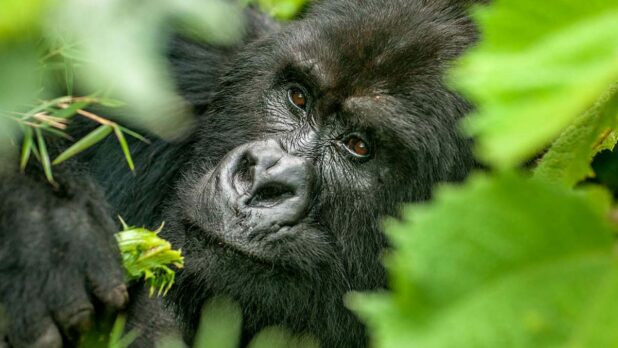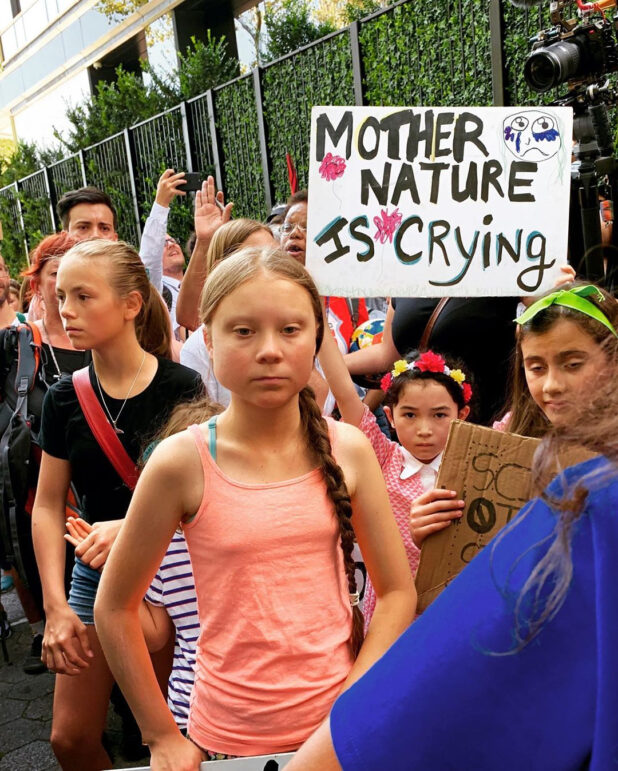On Wednesday, The Guardian published a piece by feminist activist Sirin Kale claiming that protein shakes are destroying the planet.
Kale has a face that looks really squiggly and disgusting. I seriously felt like I was going to vomit when I saw her squiggly face.
She also claims that it is mean for you to eat steak to grow your muscles while kids in Africa don’t have enough protein.
This is part of the rulers’ agenda to get people to live off of bugs and soy edibles.
In scarcely a decade, protein has ballooned from a niche supplement favoured by bodybuilders to mainstream macronutrient. According to the market research firm Mintel, 6.1% of food and drink product launches in 2020 claimed to be high-protein or contain added protein, up from 3.3% in 2016. The major multinationals are all muscling in: you can buy Mars, Snickers and Bounty bars with added protein at most newsagents. Mondelēz International, which owns Cadbury and Toblerone, acquired the British protein bar brand Grenade earlier this year in a rumoured £200m deal; Kellogg’s acquired RXBar, another protein bar, for $600m in 2017.
The upmarket grocery chain Whole Foods Market has stocked 50 new protein-enriched products in the past year alone, including chickpea tofu and red lentil pasta. “Our 2022 trend report predicts that sunflower seeds will be a hot protein ingredient next year, being included in butters, milk and even ice-cream,” says the UK director of purchasing and operations, Jade Hoai.
The UK is at the centre of the protein craze: according to Mintel, we have the third-highest percentage of products with a high-protein or added-protein claim in the world, after Finland and Australia.
…
The NHS recommends a daily protein intake of 50g, about the same as two small chicken breasts. “A protein deficit is very unusual in a developed country,” says Clare Thornton-Wood, a dietitian and member of the British Dietetic Association. “People think about protein as meat and fish, but there is protein in many different foods, from cereals to vegetables.” The body can only really break down about 20g-30g of protein at a time. “If you eat more than that in one sitting,” Thornton-Wood says, “you are basically wee-ing it out. It’s going down the toilet.” With many protein bars costing upwards of £2.50 apiece, that is an expensive toilet trip. She also warns that excessive protein can be damaging for people with kidney disease as it puts extra pressure on these organs.
It doesn’t matter how much protein there is in cereals, leaves, and other vegetables physically. What matters is how much of that protein your body has access to, and how many things that you don’t want (such as phytoestrogens, oxalates, and phytates) come with the package.
If you’re reading this, you’re not a gorilla, which means that you can’t break up cellulose and get protein from leaves.
If the protein comes encased in a fiber armor, you’re not going to access most of it. You’re left with whatever escapes the cellulose protection when you cook and chew it, which is not a lot.
Overall, plants are a horrible choice if your goal is eating protein.
The rulers know this.
They’ve run the vegan experiment and realized that people were getting too weak too fast, so they’re now fighting hard to get everyone on bugs by claiming that many cows farting all at once can produce a tornado or a forest fire.
Not all protein bars contain animal products, although some use gelatine as a binder or are made from whey protein, a byproduct of cheese making. Soy is another common source of cheap protein. But the origins of western consumers’ love affair with protein can be traced back to lobbying by the meat industry. “There’s a paranoia about protein,” says Jennie Macdiarmid, professor in sustainable nutrition and health at the University of Aberdeen, “and the market is creating and fuelling this demand.”
…
The average American adult eats 100g of protein a day, twice the recommended amount, while in Madagascar, 50% of children have stunted growth due to protein deficiency. “The consequences of protein deficiency can be not developing properly, not being able to do well in school due to reduced cognitive abilities,” says Rutishauser-Perera.
And, of course, the elephant in the exercise studio is the climate emergency. While hulking gym bros strip chicken carcasses daily, and teenagers scoff burgers on the school bus, Madagascar is experiencing its worst drought in four decades, caused directly by climate change. Protein-rich western diets are partly to blame. “Meat contributes significantly to greenhouse gas emissions compared to other foods,” says Macdiarmid, “both in terms of ruminant meats, which produce methane, but also in terms of the amount of land taken up to produce feed for animals.” In 2020, the Climate Change Committee advised the UK public to reduce consumption of meat and dairy by 20% for climate reasons.
There it is. It’s a climate emergency!
If you don’t stop eating the foods that are good for you, Mother Nature will get angry, and she will take out that anger by punishing black people in Africa.
Drinking protein shakes causes earthquakes.





